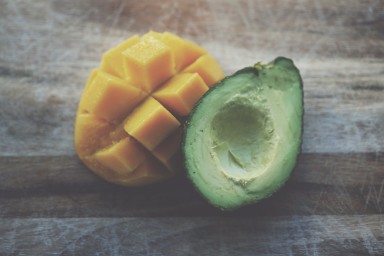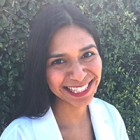 Without a doubt Austin is one of the best cities to be vegan in. Vegan culture is alive and well here with numerous dining options, veg events and a supportive community of friendly animal lovers. Twelve years ago I became vegan without truly knowing what that meant and without knowing a single person who identified as such. Even back then, being vegan in Austin wasn’t all too challenging despite being in the heart of Texas, a state known for its love of barbeque. I greatly owe veganism for leading me to a more health conscious way of life and ultimately to my love, naturopathic medicine.
Without a doubt Austin is one of the best cities to be vegan in. Vegan culture is alive and well here with numerous dining options, veg events and a supportive community of friendly animal lovers. Twelve years ago I became vegan without truly knowing what that meant and without knowing a single person who identified as such. Even back then, being vegan in Austin wasn’t all too challenging despite being in the heart of Texas, a state known for its love of barbeque. I greatly owe veganism for leading me to a more health conscious way of life and ultimately to my love, naturopathic medicine.
As a naturopathic doctor and proud vegan, people often reach out to me with questions about supplementation, concerned about whether or not a vegan diet is healthy and if deficiencies can occur when following a strict vegan diet.
Before addressing supplementation, it is important to understand why some choose a vegan lifestyle. Self-identified vegans have many different reasons for choosing to abstain from all animal products in their diet. This could include the welfare of animals, personal health, spiritual beliefs and environmental reasons. Veganism has gained more attention in recent years as celebrities and well-respected physicians are endorsing the lifestyle and diet. If you have ever thought about going vegan or reducing animal meat and products in your diet, it has never been easier!
So the main question is, can you become deficient in vitamins and minerals if you follow a vegan diet? The simple answer is yes, of course you can. Any diet whether vegan, paleo, Mediterranean, etc. can lead to deficiencies. Many health experts will agree that even if you have the most well-rounded diet you will probably need to supplement at some point in time. The truth is, the vegan diet, when mostly comprised of organic whole foods, is extremely nutrient dense, anti-inflammatory, high in fiber, cardioprotective, and the list of benefits goes on! It is very easy to get the adequate amount of protein in the vegan diet as well, as proven by vegan bodybuilders and athletes.
My recommendation is to first work with a naturopath or holistic nutritionist to help you develop a nutritional protocol that works for you and addresses your health needs. As a starting point, I find that these supplements generally need to be added to a vegan diet: B-12, iodine, vitamin D, omega-3’s and iron. A high-quality multivitamin can address these nutrient needs and make supplementation easier. Many of the brands we carry at Peoples have vegan options in which the product is made without any animal bi-products and the capsules do not contain gelatin. If you are pregnant, breastfeeding, or planning to become pregnant and are vegan, I highly recommend you see an expert for guidance. If you are an athlete or are looking to get more protein in your diet, I recommend trying Xymogen’s Fit Food Vegan powder, which contains 17 grams of protein per serving.
It is important to understand that there are lot of myths about the vegan diet out there. Just like any diet, it can be unhealthy if not done correctly, but this is not common amongst health-conscious, knowledgeable vegans.
Whether or not the vegan diet is right for you, reducing your intake of meat, eggs and dairy and increasing your intake of plant-based foods can have a positive and even life-saving impact on your health.
Lauren Sanchez, ND* received her Naturopathic Doctorate at the Southwest College of Naturopathic Medicine in Tempe, AZ. Her natural approach to medicine facilitates healing by respecting the mind, body and spirit connection. She also specializes in helping individuals reach optimal wellness through a plant-based regimen. She is excited to be an integral part of your health journey and a resource for optimal wellness for you and your family.
*Naturopathic doctors are not currently licensed in the state of Texas.

